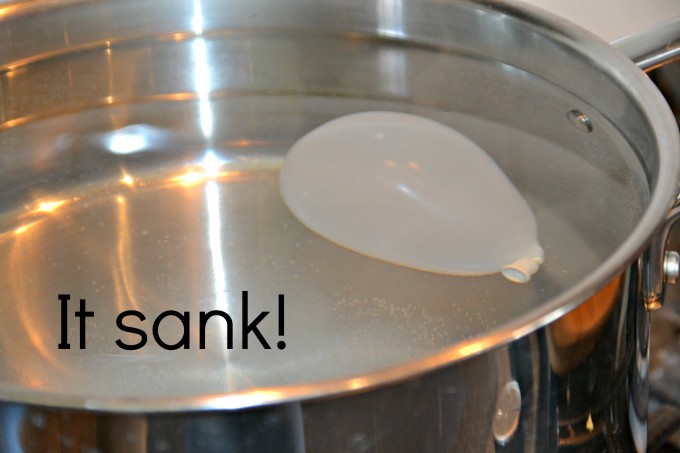Today’s activity was unplanned, just something we observed whilst playing with water balloons.
We were playing with water balloons, filling them up and getting ready to soak each other and I asked the kids while they were holding them if they thought they would float or sink. The consensus was they would sink because they were heavy. Out of interest, I asked them if they thought an empty balloon would sink or float, and they thought it would float.
We found a saucepan deep enough to allow our balloons to sit inside and filled it up with cold water. We then dropped in our balloons and waited. All of the balloons floated, including the empty ones.
We took out one of the balloons and rolled it around in our hands and noticed the air bubble always rose to the top. We wondered if this made the balloons float. I realised we could test this. Our balloons came with a water pump, and I found I could fill them underwater without letting any air in.
We did this and checked our balloon for air… None! It still floated!
I then explained that balloon rubber floats which we had already observed, and that the water in the balloon was the same as the water in the pan so overall the balloon and water should float, right?
I then told the kids that temperature has an effect on water…so we heated up the water in the pan ( keep the kids well away from the hot water )
When the water in the pan was too hot to touch, I took it off the heat and put it somewhere safe where the kids could see it, then carefully put the balloon in it. It sank.
Twenty minutes later, when we came in the balloon was floating… How strange …. what do you think happened?
The science bit
Warm water is less dense than cold water, so the cold water in the water balloon was more dense than the hot water and so sank. As the water cooled down, its density increased, making the balloon float again.
Warm water is less dense than cold water because the heat source excites the water molecules, making them move faster. When they bang into each other, they bounce away making the distance between them greater and the density less.
Last Updated on July 31, 2023 by Emma Vanstone




you are all too smart – that went right over my head!
Great one for summer science – thanks!
It is just awesome